Heart Healthy Chard Wraps with Quinoa and Walnuts
Written by Rachel, Posted in Dinner, Fruit, Gluten Free, Grains, Lunch, Main Dishes, Quick and Easy, Quinoa, Sides, Vegan, Vegetables, Vegetarian
I’ve read that leafy greens are good for you. Some of you might be sighing and wishing I was wrong. But, it’s just true. So let’s all cheer for greens!
Specifically, let’s go crazy for chard.
Want to know why it’s great for you?
One cup of chard has: 1.8 mg vitamin C (antioxidant, protects LDL cholesterol)‚ 18 mg calcium (strong bones), 30 mg magnesium (conducts electrical impulses of muscles and nerves), 136 mg potassium (“regulates water balance in the body” and “stimulates nerve impulses for the heart”) (1)‚ …to name just a few.
What it doesn’t have: a lot of fat and cholesterol (0.08 g fat, and 0 mg cholesterol ). (1)
Chard and other fruits and veggies contain antioxidants, which, along with other compounds, “prevent plaque from building up on the arterial walls, reduce blood pressure, and strengthen heart muscles.”‚ (1)‚
Let them eat chard.
Let’s talk about quinoa.
One cup of quinoa has: 22 g protein, 10 g fiber, 83 mcg folic acid, 4.98 mg niacin (vitamin B3) (“important for blood circulation and reducing cholesterol levels in the blood”) (1), 102 mg calcium, 357 mg magnesium, 697 mg phosphorus, and 1258 mg potassium. (1)
Know what it doesn’t have a lot of? Fat and cholesterol (9.9 g fat – 1 g saturated – the bad kind, 2.6 unsaturated – the good kind, 4 g monounsaturated – the good kind, 0 g cholesterol) (1).
Hello heart health.
Walnuts, walnuts, walnuts.
One cup has: 14.8 g protein, 6.7 g fiber, 98 mcg folic acid, 99 mg calcium, 380 mg phosphorus, 450 mg potassium, 47 g unsaturated fat, and 8.9 g monounsaturated fat. (1)
Know what they don’t have a lot of? Saturated fat (4.5 g) and cholesterol (0g). (1)
Walnuts contain omega-3 fats, which “inhibit blood clotting, encourage activity of the parasympathetic nervous system, increase blood flow, protect against heart arrhythmia, dissolve clots, lower blood triglycerides, raise HDL cholesterol, and have anti-inflammatory properties.” Omega-3 = clearer arteries. (1)
Notice a trend?
Why do these things matter? Why should you care?
Here’s why…
It’s simple, the heart is a necessary component for life. So let’s treat our hearts to wonderful fruits and veggies, good fats and lean proteins, and plenty of vitamins and minerals.
Happy Eating!
- 1 T olive oil
- 3-4 small or 2 large leeks, washed well and chopped
- 1 spring onion, chopped
- 1 C quinoa
- 1 lemon, zested
- 1/4 C raisins, chopped
- dash cayenne
- to taste, salt
- to taste, pepper
- 2 C water
- 1/2 C walnuts, chopped
- 1 lemon, juiced
- toothpicks
- 6-8 large chard leaves (leave 1″-2″ of stem)
- salt
- water
- Heat a medium saucepan and add oil. Add leek and onion. Cook over medium heat for 3-5 minutes.
- Add quinoa, lemon zest, raisins, cayenne, salt, and pepper. Cook for about 2 minutes.
- Add water, cover, and bring it to a boil. Uncover and cook for 10 minutes, or until quinoa is cooked.
- Stir in walnuts and lemon juice. Taste and adjust seasoning.
- Heat a large pot and add water and salt. When water is boiling add chard and cook for 1 minute. Transfer to a bowl of ice water to stop cooking. (Save boiled water to make vegetable stock.)
- Scoop some of the quinoa filling on to the center of the chard leaf. Wrap the sides inward, then wrap the top and bottom to overlap the sides. Secure the stem with a toothpick.
Note: I’m not a healthcare professional. I’ve done a little bit of looking around. These are just some thoughts. Ok? Cool? Cool.
(1) Nutrition Almanac, Mc Graw-Hill 2001, Fifth Edition, Lavon J. Dunne
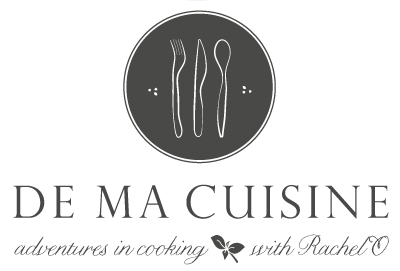
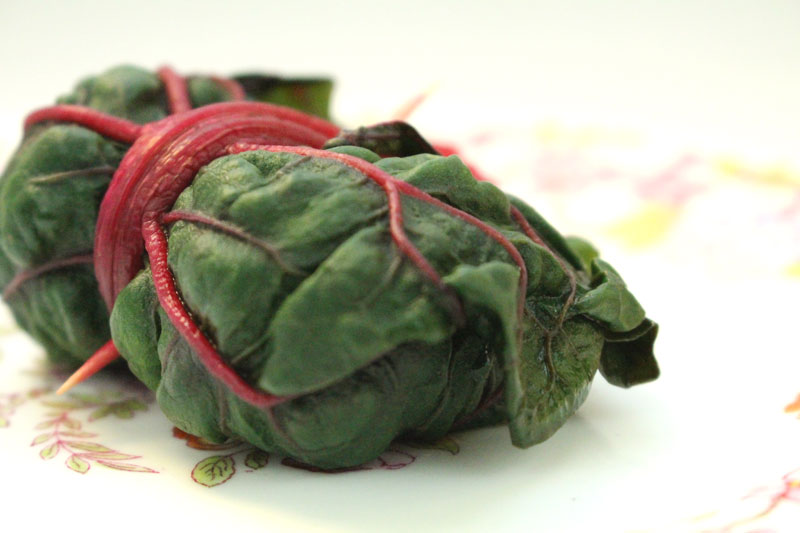
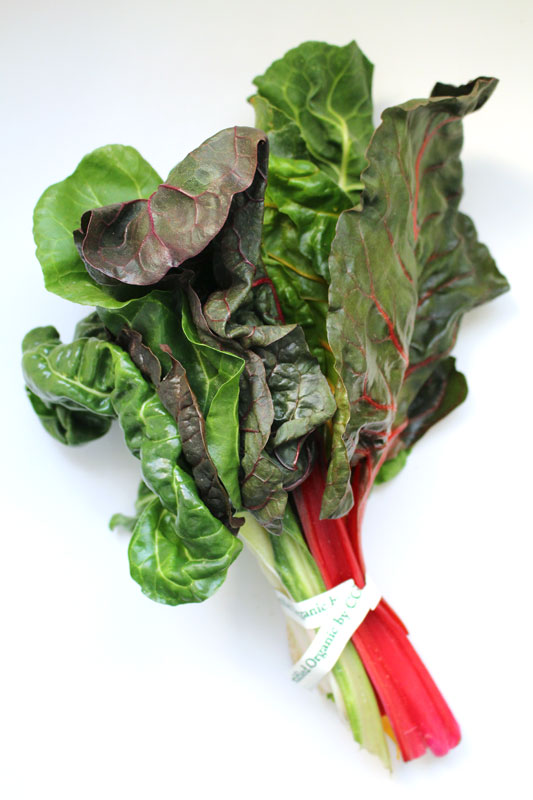
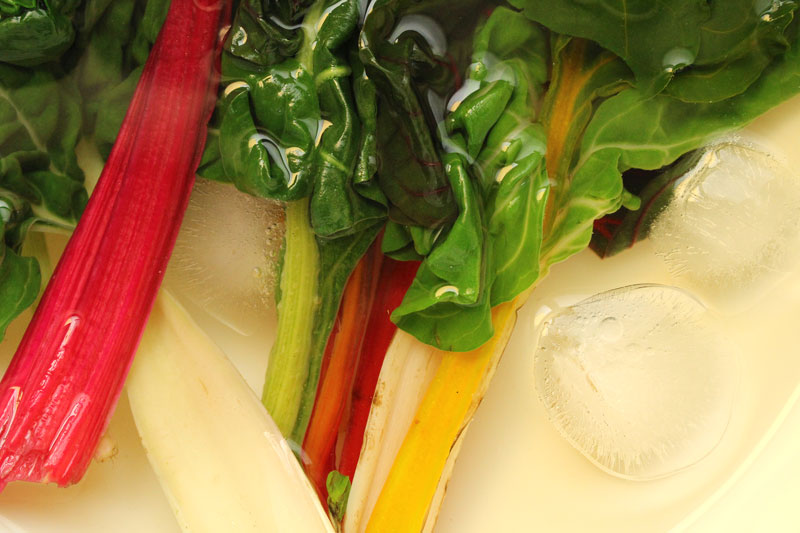
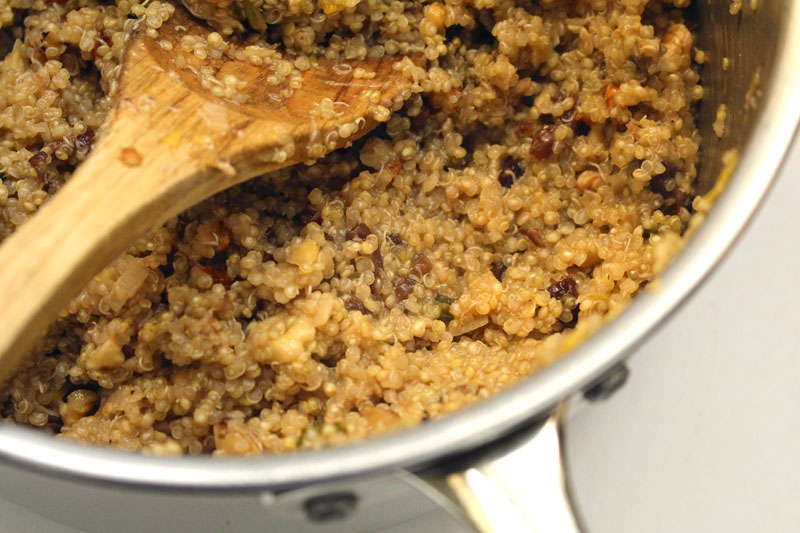
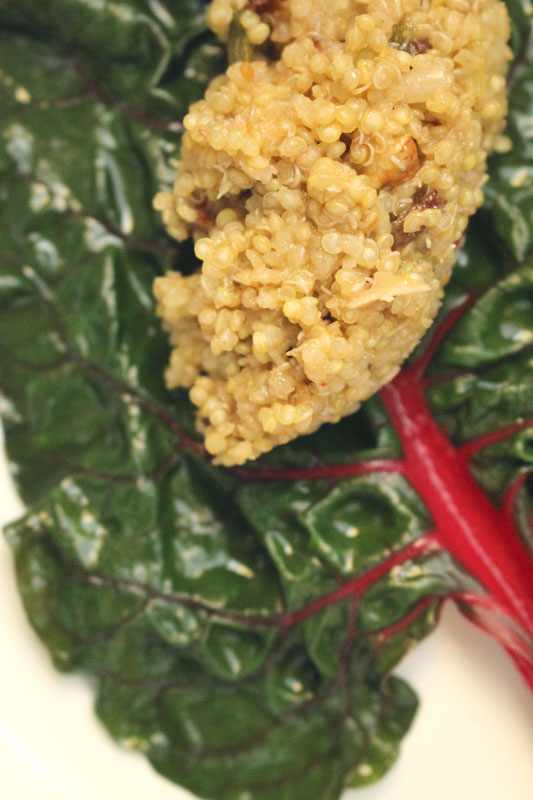
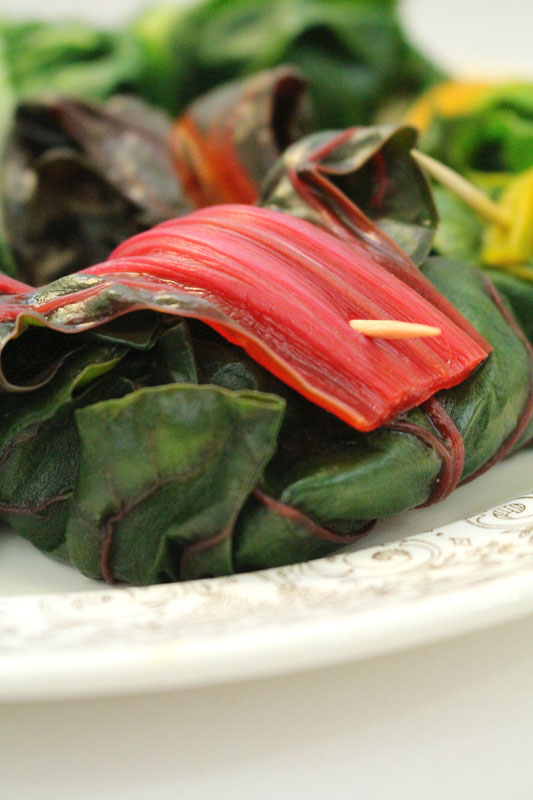
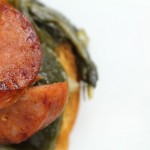
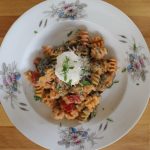
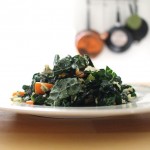
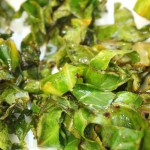


1 Comment